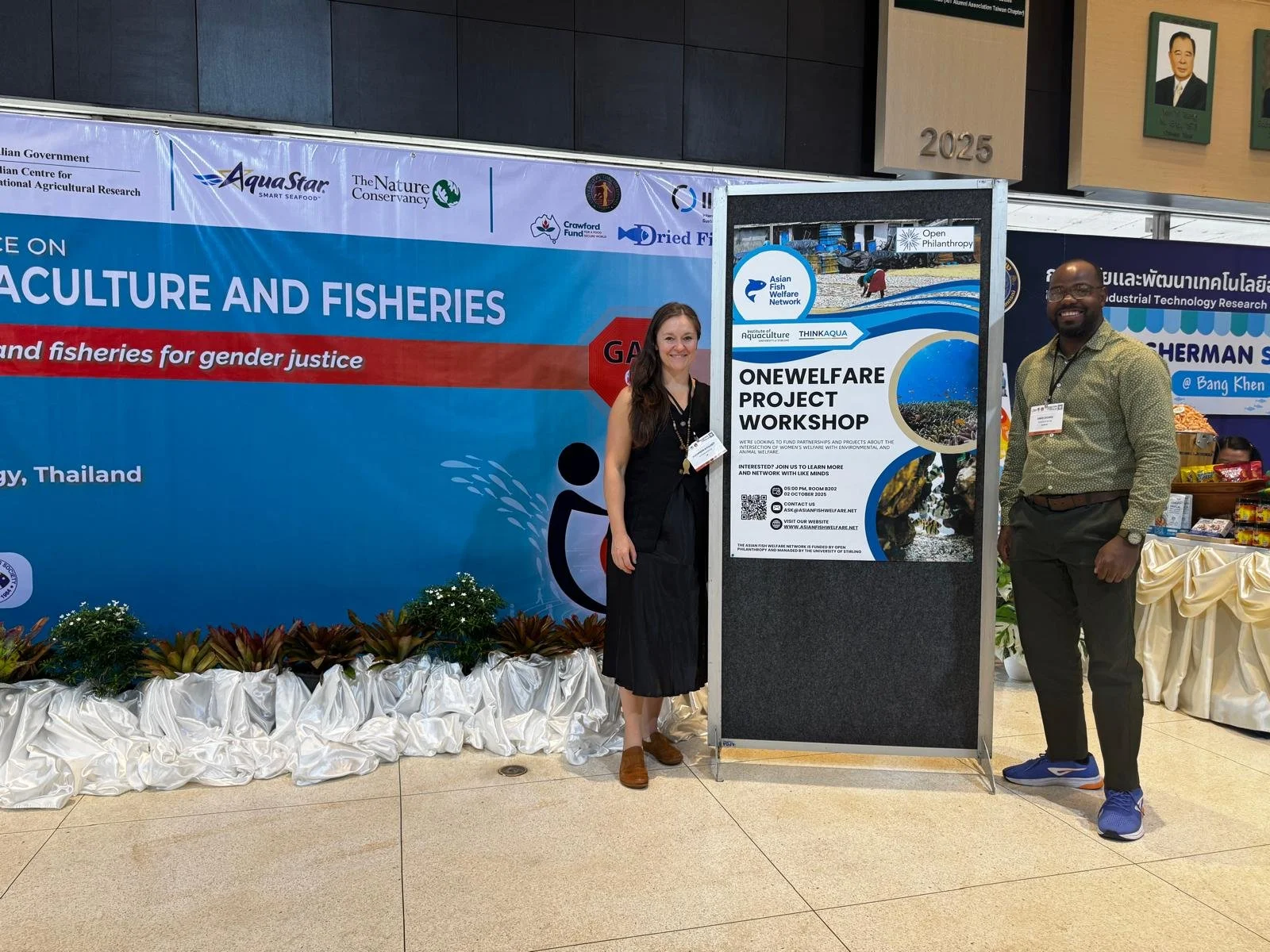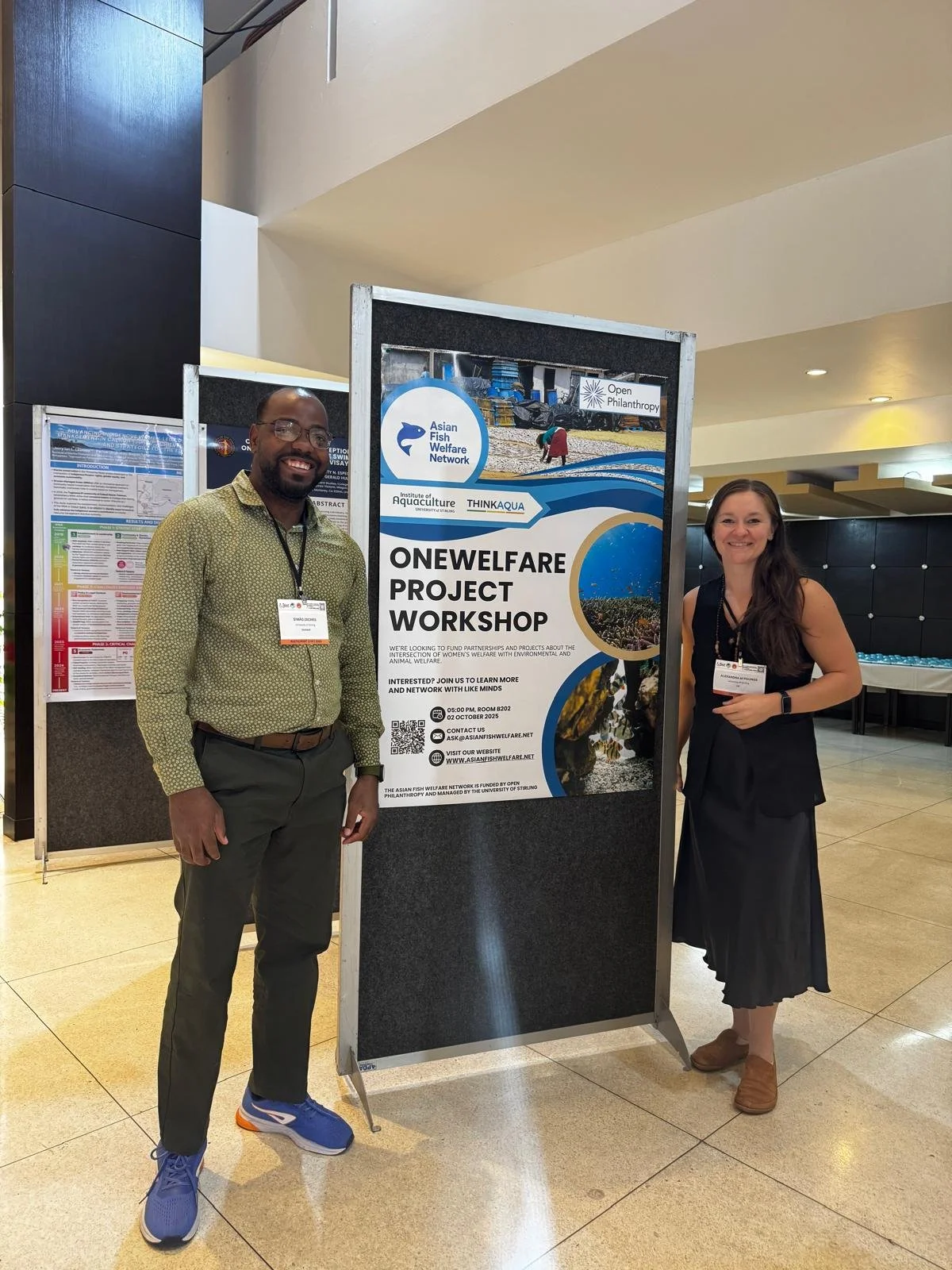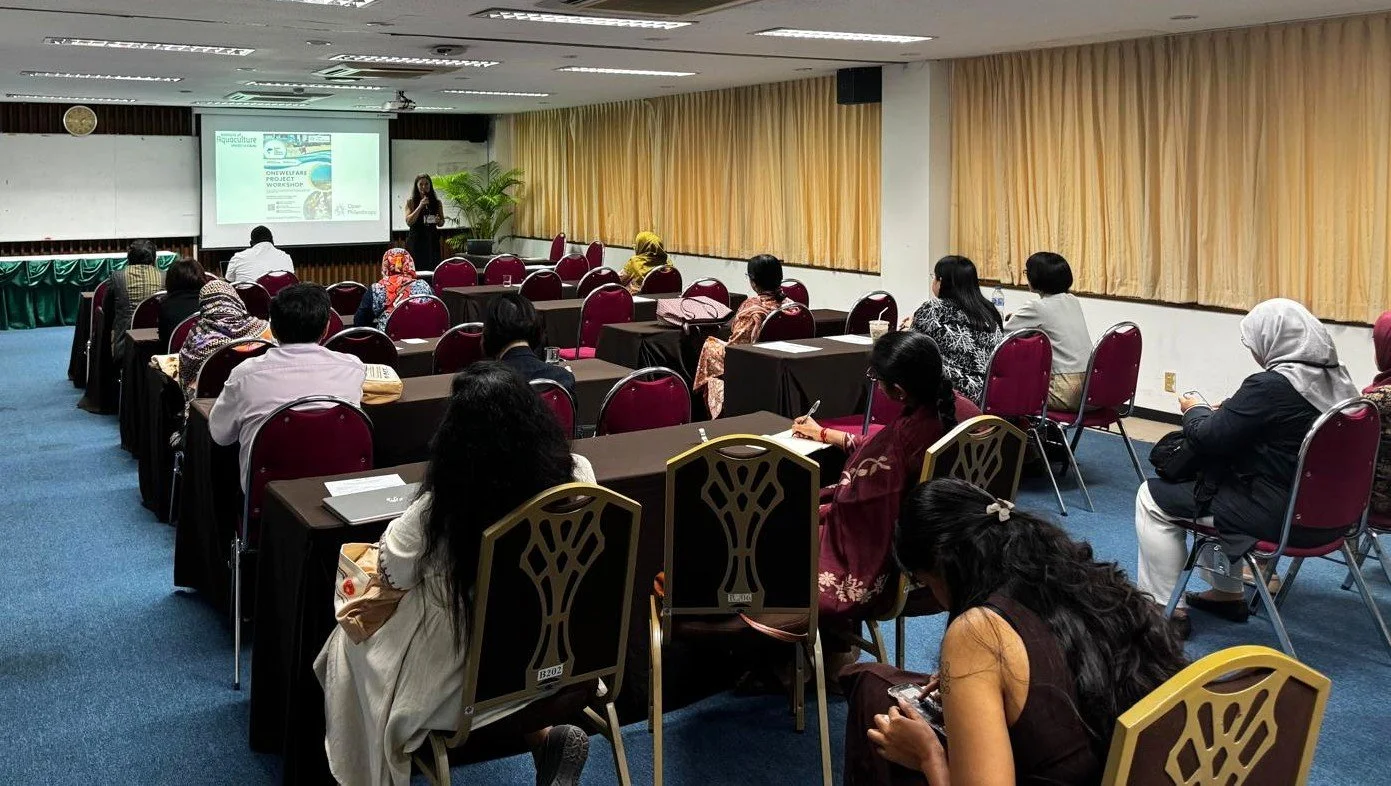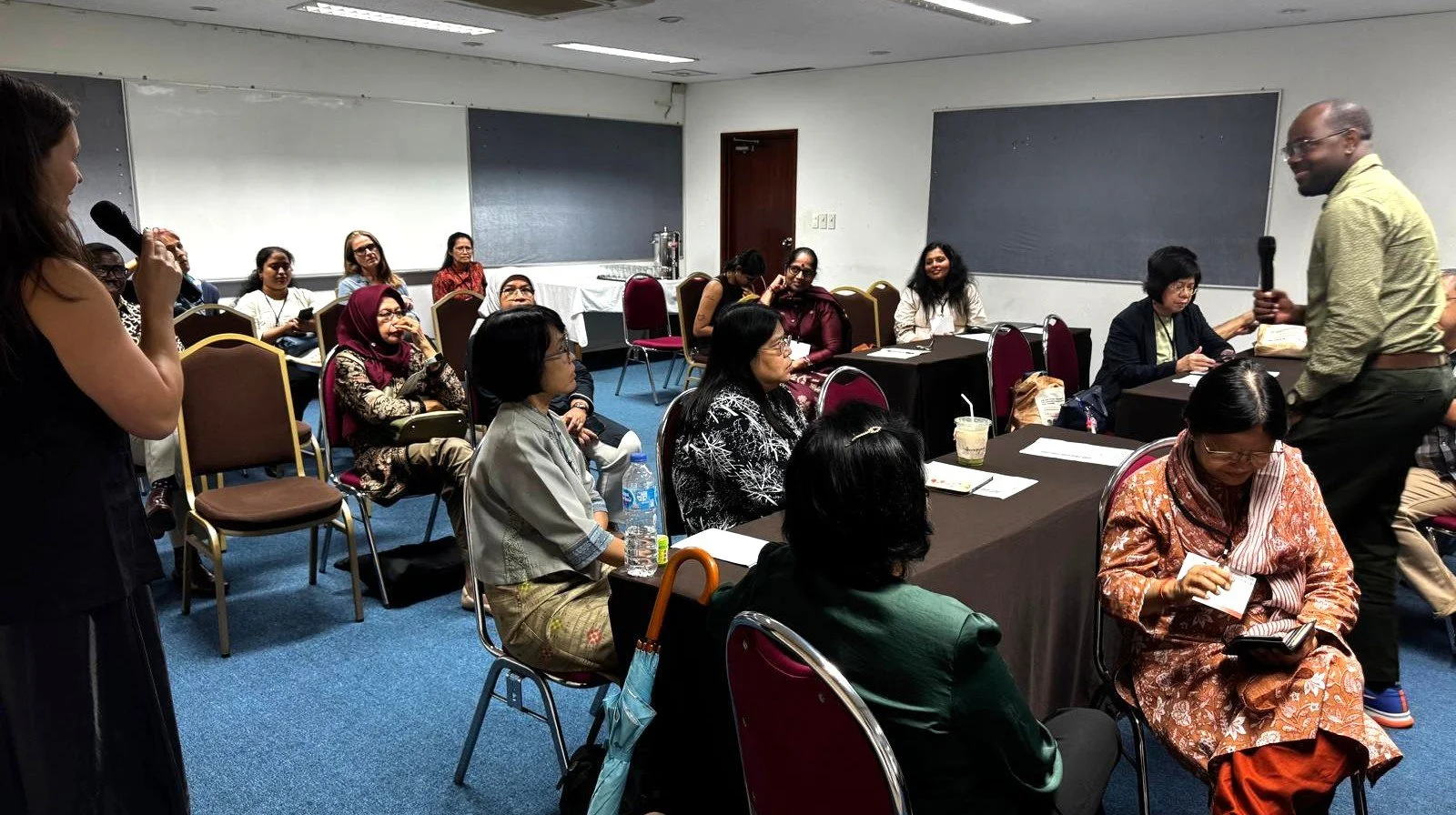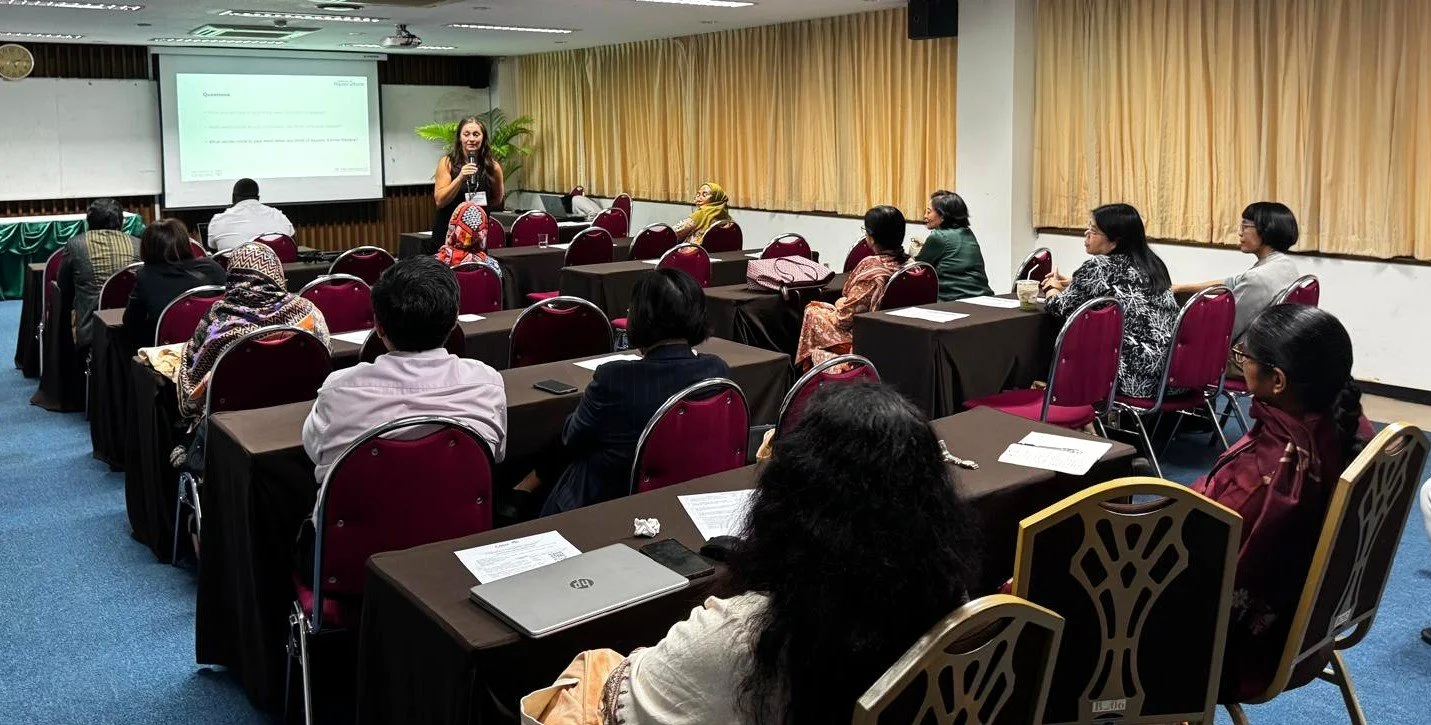Bangkok, 3 October 2025 — Dr. Simao Zacharias and Dr. Alexandra Pounds hosted a OneWelfare workshop during the Gender in Aquaculture and Fisheries (GAF) conference at the Asian Institute of Technology, drawing around 30 participants from across Asia and beyond.
The session formed part of the Asian Fish Welfare Network, an Open Philanthropy–funded project now entering its second phase. The initiative aims to bring more social scientists into discussions of animal welfare — a field traditionally dominated by biological and veterinary research.
Discussions focused on the idea that “welfare” is not a fixed concept but a social construct shaped by cultural values, local practices, and lived experiences. Participants explored how definitions of welfare vary across regions and how these differences influence both policy and on-farm realities.
“Understanding welfare requires more than measuring stress or growth rates — it’s about understanding people,” said Dr. Pounds. “The choices farmers make are influenced by social norms, gender roles, and economic pressures.”
A recurring theme was the need to apply the OneWelfare framework (devloped by Dr Rebeca Garcia Pinillos et. al., 2016) to explicitly include aquatic animals and their roles within food systems, as most applications of the framework to date have focused predominantly on terrestrial species. Participants agreed that welfare cannot be considered in isolation from social context in the aquatic animal food system— for instance, how women’s participation in live fish markets and decision-making influences care practices, or how local beliefs about animal sentience shape husbandry and handling.
Participants shared examples from their own countries, highlighting how improvements in fish welfare can affect working conditions — for better or worse — and underscoring the importance of gender-sensitive approaches in an aquaculture value chain that is highly gendered.
The workshop also provided a platform to present the aims of the Asian Fish Welfare Network and to invite collaboration. Dr. Zacharias and Dr. Pounds encouraged social scientists, anthropologists, and gender specialists to contribute to future research phases, helping to build a more holistic understanding of aquaculture welfare across Asia.
They emphasized that existing OneWelfare frameworks have largely been developed through veterinary lenses and that stronger cross-disciplinary collaboration between natural and social scientists is essential to build a more inclusive approach to aquatic welfare.
By the end of the session, participants shared a common recognition that fish welfare is not only a technical issue but also a social one. The discussion underscored the importance of interdisciplinary collaboration to ensure that welfare improvements are contextually grounded, culturally sensitive, and socially equitable.
